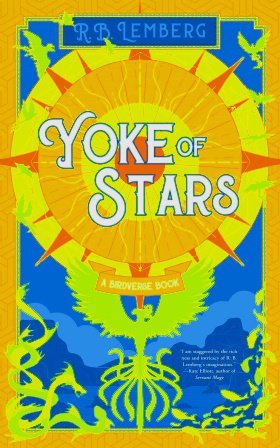“Ah—Coastal speech is not like in the language of the desert. I, too, am translating.” Ulín explains, and I think I understand; this word in her own Coastal tongue does not mean that Sibeli was a woman—they weren’t—but that the two of them had a relationship closer than any other, and that Ulín was birthed from their body. Only rarely would this word be used, but it was the hour for it.
Ulín said, “Mother, I think I am with child.”
“May I?” her parent said. They put their hand on Ulín’s belly, and the warmth of their touch told her that Sibeli was using their magic. Then they nodded. “Three weeks.”
Ulín swallowed tears, saying nothing.
“He was violent,” Sibeli guessed. “I see the bruises on you.”
“He never hurt me when we slept together,” Ulín said, defensive. “He always asked for my consent.”
Sibeli's face held no judgment. “And the bruises?”
Only on other days. Ulín did not know how to say that. I loved him—was that even true? He loved me—then why did he imprison her, why did he turn violent?
“I am so, so sorry, my child—but it is your decision whether to give birth, and if you would keep it, I will support you.”
Ulín looked away. This was the moment of truth. Of her truth. She had loved Laufkariar, but he did not give her a choice to be free. He wanted things his way, only his way. He wanted her pliant, compliant, at his mercy. He told Ulín that he loved her, even after he hit her.
She would be only a womb.
She was more than her womb, and would be now and forever, no matter what her decision would be.
Her parent waited.
Everybody on the Coast understands that children are precious. They are the fragile future of a land that had sheltered her people a thousand years ago, when Ranra brought her ships here, escaping the fire that destroyed the Sinking Lands. Children are an obligation—but lovingly made, raised by parents and partners, and friends and their partners, and kin. Children are also a duty, but nobody can force anyone to give birth. Ulín never wanted a child. She was barely twenty now.
She did not want to make this decision.
Ulín’s face is drawn, but her eyes are dry. “I never told this story before. Not even my father knows.”
“What would he say,” I ask, “if he knew?”
“I have no idea.” She is in pain and trying not to show it. “Perhaps he would say to give birth; he wanted a grandchild. Perhaps not to give birth. He hated Laufkariar.” She sighs. “Whatever he told me, it would be political.”
“Or he would come to his senses, and be your father again?”
A sudden flare of hope in Ulín’s eyes is hard to witness. “He never did. He won’t. I am not a person for him anymore, at least not most of the time.”
“Do you want to stop?” I ask her.
Sadness sits like exhaustion in her limbs, but she says, “There’s not much left of it. I will finish.”
Sibeli waited. They said nothing, listening and waiting for her.
This was Ulín’s choice to make, according to ancient Coastal ways. The person who bears a child within their body has the right of decision. Perhaps Ulín’s father would remember that if she reminded him, how consent is always paramount among her people, even though he’d forgotten that in his rush to cure her.
Ulín swallowed bitterness. It did not matter what Kannar thought. Her father was not here. Laufkariar, too, wasn’t here.
She was free. She was free.
In a quiet voice, Ulín said, “I do not want to keep it.”
“Come with me then,” said her parent. “Let us make you comfortable.”
A few days later, still nauseous and not entirely well, Ulín was in a hired carriage and headed north to Lysinar.

























